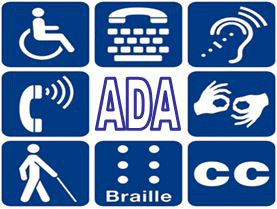 On December 23, 2021, Judge Peter Krupp did what many think is unthinkable. He reversed a blatantly unfair decision rendered by the Massachusetts Parole Board to lifer, Rolando Jimenez..
On December 23, 2021, Judge Peter Krupp did what many think is unthinkable. He reversed a blatantly unfair decision rendered by the Massachusetts Parole Board to lifer, Rolando Jimenez..
Krupp, a superior court judge, ruled on Jimenez’s case and decided that he deserved another chance at parole since the board had really paid no attention to the particulars of his case. And in fact, had no reason to deny him parole.
It took the board 11 months to issue a decision on Jimenez’s case (which is not unusual since the board has had an 8-10 months lapse between hearing and decision during Chair Gloriann Moroney’s tenure as a matter of course). They gave the applicant a three-year setback after he had tried for parole four previous times and been refused (1999, 2004, 2009 and 2014.)
Some of what Krupp criticized was the board’s specious use of language to deny Jimenez parole. The board said he showed lack of “candor” in admitting his guilt. This was blatantly an absurd comment considering the board ignored the fact that the man changed over time and (of course!) sees his actions differently as a young man than he does now as a 60-year-old.
How many of us would see the worst action of our youth the same way that we see it as we mature and understand more about human behavior?
The board’s lack of knowledge about how to treat someone who is hearing impaired (and speaks Spanish and needs an interpreter!) was also taken to task by Judge Krupp. This could have happened with many parole applicants because some board members lack the sensitivity and understanding of how to deal with people who have disabilities. The fact that an interpreter cannot guarantee an exact translation should be obvious, especially when someone’s life is at risk. Judge Krupp said, in his decision, “Given the use of TTY and an interpreter, there is a considerable question about whether Mr. Jimenez used the passive voice in describing the shots fired, or whether it came out that way through translation.”
In addition, Krupp pointed out what has been said all along about parole board lack of transparency. under Moroney. The board’s decisions are “boilerplate.” Those people attending parole hearings, i.e. Parole Watch in Massachusetts, have said this. And Judge Krupp said this. Krupp quoted sections of the decision that are essentially cut and pasted from decision to decision.
The Board has taken into consideration Mr. Jimenez’s institutional behavior,
as well as his participation in available work, educational, and treatment
during the period of his incarceration. The Board has also considered a risk &
needs assessment and whether risk reduction programs could effectively
minimize Mr. Jimenez’s risk of recidivism. After applying this appropriately
high standard to the circumstances of Mr. Jimenez’s case, the Board is
of the unanimous opinion that Rolando Jimenez is not yet rehabilitated and,
therefore, does not merit parole at this time.
Finally, Krupp pointed out the Massachusetts Parole Board essentially gives no real reason for denying Jimenez parole. That is perhaps as offensive of any of their lapses. As Gordon Haas, lifer at Norfolk MCI has pointed out in many of his reports, and, in partricular, in his 2020 report about the board’s decisions for lifers, “The Parole Board continues to eschew giving specific reasons for approving or denying paroles as well as indicating any deficient areas a lifer needs to address and relevant programs.”
For all those reasons, Jimenez had his decision overturned. He will have to go for a new parole hearing in a few months. Let’s hope the board takes this decision to heart and realizes that people in Massachusetts are watching.
(pictured above the way the board now has hearings–they’ve constructed a divider in between so-called supporters and so-called victims, to emphasize the separation.)
 Please read and share my newest at DIGBoston. As Massachusetts Reconsiders Life Without Parole for 18 to 20-year-olds, Will Race Matter? begins:
Please read and share my newest at DIGBoston. As Massachusetts Reconsiders Life Without Parole for 18 to 20-year-olds, Will Race Matter? begins:



